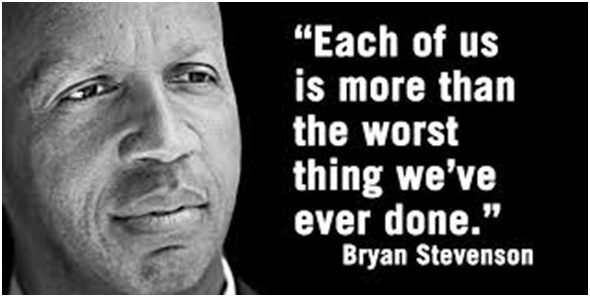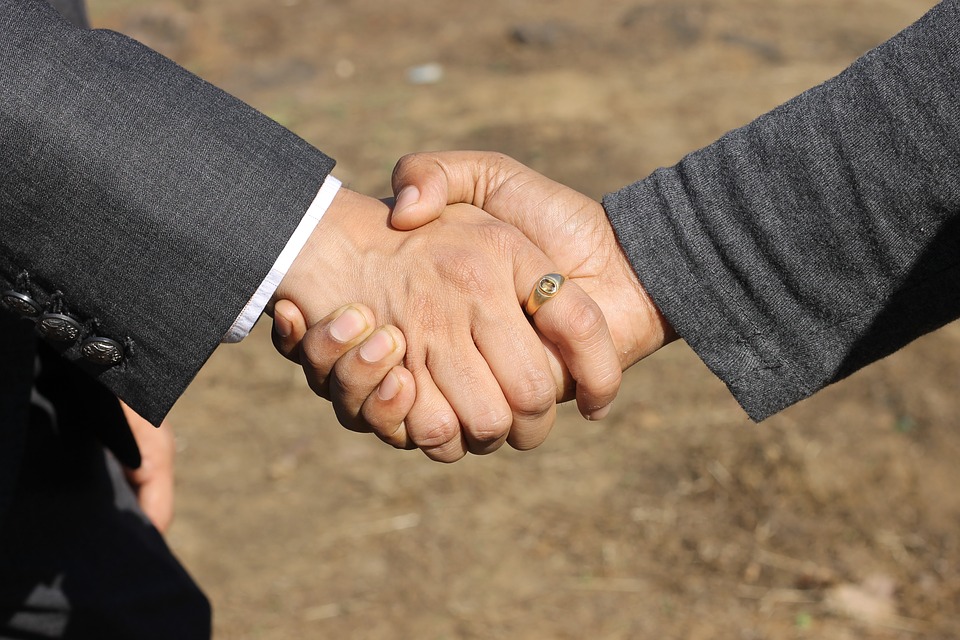In the movie “Just Mercy,” the lawyer Bryan Stevenson expresses empathy for a client on death row by saying, “Each of us is more than the worst thing we’ve ever done.”

(source)
Showing empathy doesn’t just make Stevenson a nice guy; showing empathy allows him to be an effective lawyer, winning cases that had been deemed hopeless. The empathy that Stevenson shows for his death-row clients allows him to uncover the truth about their alleged crimes in a manner that eluded the previous, less-effective lawyers. Stevenson discovers that several of his death row clients, as portrayed in the movie, were innocent of the crimes for which they were awaiting execution in the electric chair.
Unfortunately, research shows that many clients feel that their lawyers do not understand them or care about their feelings. For example, a law firm hired a high-scoring law school graduate only to write the following critique a short time later:
[The clients] felt she didn’t hear them. There was no connection. It was as though she knew what they would say before they even met. She would ask elaborate questions, leading the clients to the answers she presupposed. And when the clients offered new information that didn’t fit with her agenda, she glossed right over it.
This lawyer’s ability to practice law was hampered by her lack of empathy and poor listening skills. When a lawyer doesn’t know how to care, important details get “glossed right over.”
At the Tingey Injury Law Firm in Las Vegas, Nevada, we feel that empathy is not just a bonus skill, existing in a small minority of good lawyers. Rather, we view it as a critical skill shown by all effective lawyers. Looking for a lawyer to win? Look for a lawyer with empathy.
Why would empathy be such a critical skill for an effective lawyer? Why couldn’t a non-empathetic lawyer be just as effective?

(Pixabay / Akshay93)
Karen J. Mathis, president of the American Bar Association, made the following statement about the integral braiding of legal expertise with empathy and compassion:
Ultimately, lawyering is a delicate balancing between a constantly evolving world and the fundamental principles that define our legal system. It calls upon your compassion as well as your intellect, your heart as well as your head…Caring is as much a part of the legal profession as intelligence… [I]t is every lawyer’s responsibility in every setting to serve others.
As one legal researcher noted, “caring actually makes analysis stronger.” Empathetic lawyers are better lawyers because caring about clients gives a lawyer the impetus to analyze the details of a case fully, bringing both a strong intellect and rigorous training to focus on creating the best possible outcome for you, the client.
Not only does empathy motivate a lawyer to be more persevering and creative in overcoming legal challenges on the client’s behalf, empathy makes lawyers happier. When lawyers are asked what they like best about their work, those who are happy in their work respond with relationship-oriented statements: “I like to help people” or “Last week, a client told me that what I did for her made a big difference in her life.” (source) Experiencing empathy allows a lawyer to enjoy her job success, but perhaps more importantly, is an essential component of achieving that success.
In contemplating the connection between legal success and empathy, Stephen Embry wrote:
After thinking about it, I decided that one reason I succeeded was that I was pretty adept at putting myself in other people’s shoes. Not just clients, but my adversaries and their clients as well. And this didn’t always mean pleasant, touchy-feely conclusions. It often meant seeing the more base and unpleasant motivations like greed, pride, underhandedness. The more I thought about my career and the career of other successful lawyers, the more I have come to see that the ability to understand these motivations… is a critical skill for a lawyer. (source)
In looking for a lawyer to win your case, look for a lawyer with empathy.
According to Ian Gallagher, a law professor at Syracuse University, empathy in lawyer-to-non-lawyer communication is a core lawyering skill, just as important as the knowledge of applicable laws and rules and an ability to synthesize and distinguish precedent:
Empathy can be seen to be of extraordinary value to lawyers. A lawyer who can project him or herself into the thoughts of another and understand how that person – juror, witness, judge, or other lawyers, for example – is thinking, has the ability to calibrate language, posture, and gesture in a manner calculated to persuade the subject to believe whatever argument the lawyer is making. Conversely, a lawyer who fails to make this empathetic connection with others will find it much more difficult – perhaps even impossible – to communicate effectively and persuasively, especially with nonlawyers. (source)
You don’t need to choose between a “thinking lawyer” and a “feeling lawyer.” Smart lawyers realize that emotional intelligence is part of their job description, a core competency of good lawyering.
Lawyers with empathy don’t gloss over your details or give up easily when attempting to improve your legal outcome. Lawyers with empathy bring purpose and job satisfaction to the table, along with their legal expertise. Lawyers with empathy have necessary insight into the opposing legal counsel as well as judge and jury. Empathetic lawyers realize that understanding your story, your concerns, and your unique details is what allows them to win cases.
No matter how large or small your legal problems, finding a lawyer with empathy will improve your chances of a good legal outcome. Contact Tingey Injury Law Firm to learn about our 50 year track record of serving Las Vegas residents with empathy, experience, strength, and integrity.
